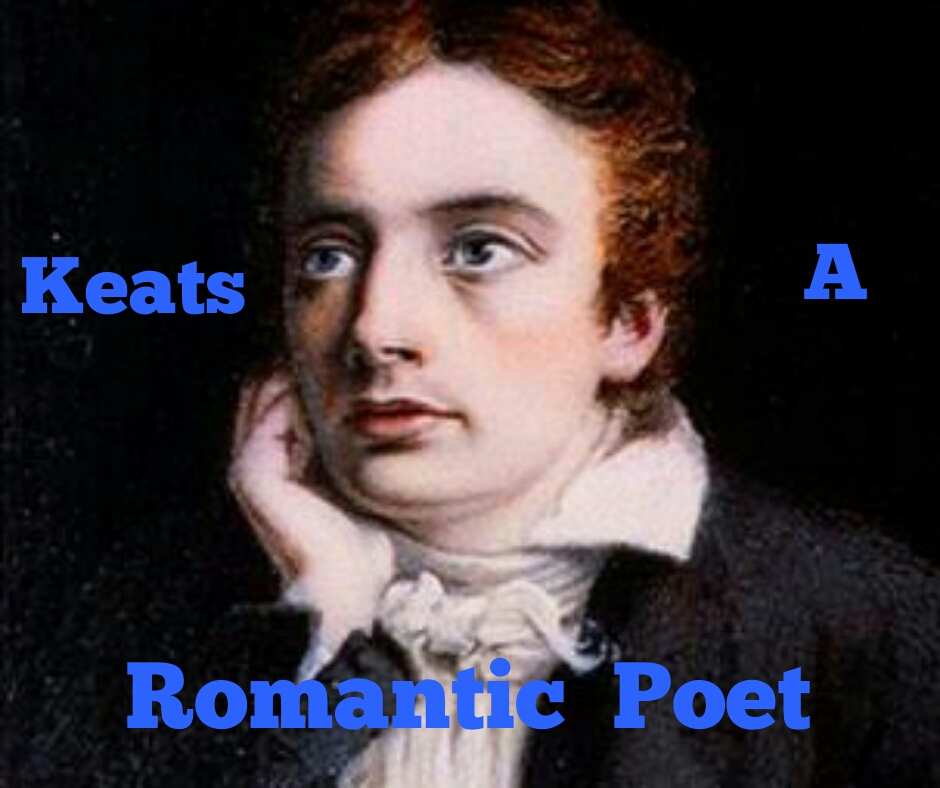Imagine a world where emotions are not merely expressed, but immortalized in language that transcends time, where the human heart, in all its complexities and contradictions, finds its voice in the most exquisite and enduring forms. This is the world of John Keats, a poet whose legacy rests on the shoulders of his iconic odes, poems that capture the essence of human experience with a raw vulnerability and profound beauty that leaves an indelible mark on the soul.

Image: nuengliterature.blogspot.com
Keats’s odes are not mere literary exercises; they are windows into the depths of human emotion, grappling with the ephemeral nature of beauty, the fleetingness of life, and the enduring power of love. His poems are a testament to the transformative power of art, demonstrating how words can elevate us to a realm of transcendent understanding, where the boundaries between the ordinary and the extraordinary blur, and the mundane blossoms into a symphony of beauty.
A Bard of Beauty and Mortality
John Keats’s life was tragically short, cut short by tuberculosis when he was only 25. Yet, in those few years, he produced a body of work that secured his place among the giants of English literature. His brilliance did not lie in his prolific output, but in the depth and intensity of his poetic vision. Keats, while a product of his time, was a poet who dared to challenge the conventions of his era, his poetry defying the neoclassical emphasis on reason and logic, embracing instead the power of intuition, emotion, and sensory experience.
The power of Keats’s odes lies in their ability to capture the fleeting essence of beauty, reminding us of the transient nature of life and the importance of cherishing every moment. His words, often laden with imagery drawn from the natural world, create a tapestry of sensory experiences that resonate deeply with our own lived experiences. We see this, for example, in “Ode to a Nightingale,” where the poet, immersed in the intoxicating beauty of nature, finds himself transported to a realm where time ceases to exist, and the song of the nightingale offers a temporary respite from mortality.
Love, Loss, and the Enigma of Existence
In Keats’s odes, love is not a mere romantic fancy but a profound force that shapes the human experience, driving us to both extraordinary heights and crushing depths. Love, for Keats, is a source of both joy and sorrow, a paradox that he explores with breathtaking honesty in poems like “Ode to Psyche.” This ancient Greek myth about love’s enduring power, even in the face of adversity, becomes a poignant reflection of Keats’s own yearning for love and beauty, a longing that finds its expression in the sensual imagery and emotional intensity of his verse.
Beyond love, Keats’s odes delve into the philosophical depths of existence, grappling with the meaning of life and death, the limitations of human perception, and the enduring power of the imagination. In “Ode on a Grecian Urn,” Keats contemplates the beauty and permanence of art in contrast to the fragility of human life, a theme that resonates deeply with our fear of mortality and yearning for permanence. In “When I Have Fears That I May Cease to Be,” he expresses the anxieties of a young poet wrestling with the immensity of his artistic ambitions and the fear of an early death, a fear that was tragically realized in his own life.
The Legacy of an Unforgettable Voice
Keats’s odes, far from being merely historical artifacts, remain vibrantly alive in the 21st century, their themes and insights as relevant today as they were in the 19th century. His poems continue to inspire artists, musicians, writers, and thinkers across the globe, reminding us of the power of language to capture the ineffable, the beauty of the human spirit, and the resilience of the human heart.
The beauty of Keats’s poetry lies not just in its language, but in its enduring power to touch us on a personal level. His odes speak to our fears, our hopes, our dreams, and our deepest desires. They remind us that we are not alone in our struggles, that the human experience is universal, and that the power of art transcends time and space.

Image: www.slideshare.net
Keats As A Poet Of Odes
Beyond the Poetic Realm: Lessons from Keats
Keats’s legacy transcends the realm of literature, offering invaluable lessons for living a meaningful life. By embracing the beauty of the moment, cultivating a deep appreciation for nature, and nurturing our own inner world of creativity, we can honor the spirit of Keats and find a way to live a life rich in meaning, even in the face of life’s inevitable challenges.
From contemplating the transient nature of beauty in “Ode to a Nightingale” to exploring the enduring power of love in “Ode to Psyche,” Keats’s words resonate with an unparalleled depth of feeling. His poems encourage us to see the world with a renewed sense of wonder, to appreciate the fleeting moments of beauty that surround us, and to embrace life’s joys and sorrows with an open heart.
While Keats’s life was tragically short, his poetry has continued to inspire and elevate generations of readers. His odes remain a timeless testament to the power of art to capture the essence of the human experience, reminding us of the beauty, fragility, and enduring power of life.
Let us all, like Keats, embrace the ephemeral nature of existence, celebrating even our darkest moments as part of the human tapestry. Let us find beauty in the smallest details, cherish the connections we make, and strive to make our own mark on the world.






